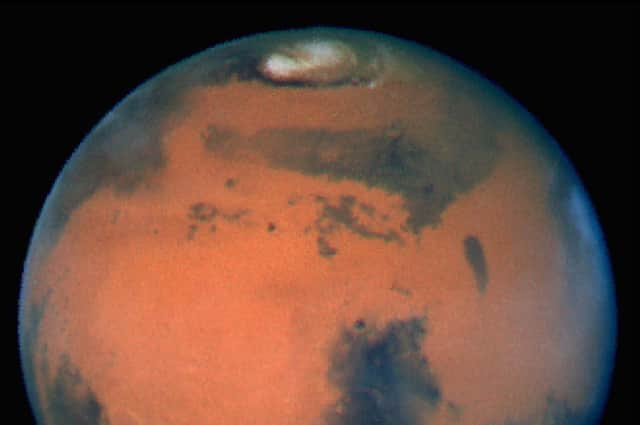How Moon and Mars colonies could learn from Hebridean island communities – Professor Charles Cockell


But, this life-giving drug is controlled by the state. Every stage of its manufacture is under the all-searching eyes of corporations, manufacturers and officials of the government. If they deny you this chemical, even for an instant, your life will abruptly end.
This imagined dystopia is not a fantasy. It would be the reality of living on the Moon and anywhere else beyond Earth that we plan to call home.
Advertisement
Hide AdAdvertisement
Hide AdThe substance is, of course, oxygen. As the Moon has no atmosphere and the Martian atmosphere is poisonous, would anyone living in such places experience freedom when they are so completely dependent on others for their existence?
We can draw similarities and apply this question to living on Scotland’s islands.
Over the millennia, Scottish islands have been run by everyone from tyrannical lairds to enlightened democracies. In some ways, we can consider these communities to be ‘experiments in living’.
In 1861, John Morgan published his account of a visit to St Kilda and likened it to space travel: “There was a strange, indescribable look about all we saw, as though we had sailed into another planet or made a voyage to one of the little asteroids.”
Of course, the indigenous population of St Kilda is no more, but other islands may provide modern versions of how governments could be run in space.
The community buy-out of the Isle of Eigg is a case in point. Here, participatory democracy allows full community involvement in the political matters of the island.
We might fruitfully transplant the experiences and the broad governance structure of Eigg to the Moon or Mars, with the involvement of the Earth in the early stages being similar to that of Highland Council, which sits alongside the Residents’ Association in managing the community.
Indeed, there are several intriguing parallels in running a small self-sufficient community of people that maintains political and economic links to a distant, but larger population. Over the last seven years, I have spent a great deal of time taking notes and learning about how island governance could be applied in the isolated extremes of space.
Advertisement
Hide AdAdvertisement
Hide AdAll islands are different, but coursing through them is a common sense of community needed to survive the sometimes harsh economic and environmental conditions, melded with that Scottish sense of individualism and resourcefulness.
Arguments about liberty and commercial society will follow us into space whether we like it or not. Much of this history may now be forgotten, but humans do not change and what has happened on those islands in the last thousands of years can surely be repeated beyond Earth in the millennia to come.
Making comparisons between islands and planets may seem like an irrelevant comparison. However, looking to past humanity is vital for the future of life and we should take the timeless recipes for success in isolated Scottish islands into space.
Charles Cockell is a professor of astrobiology at the University of Edinburgh, and a fellow of the RSE. The RSE is Scotland's National Academy, which brings the greatest minds together to contribute to the social, cultural and economic well-being of Scotland.
A message from the Editor:
Thank you for reading this article. We're more reliant on your support than ever as the shift in consumer habits brought about by coronavirus impacts our advertisers.
If you haven't already, please consider supporting our trusted, fact-checked journalism by taking out a digital subscription.
Comments
Want to join the conversation? Please or to comment on this article.
